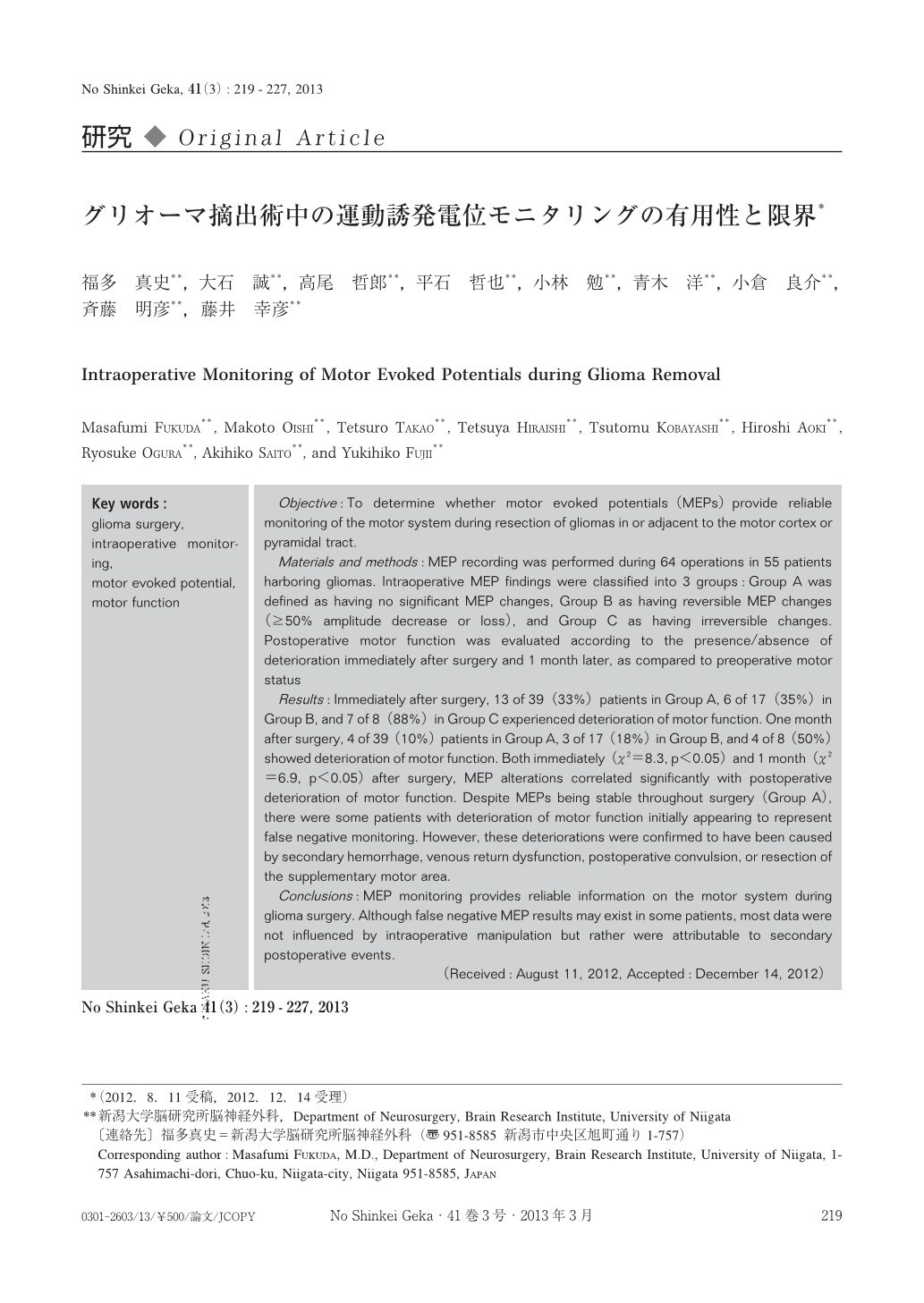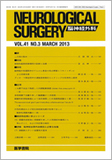Japanese
English
- 有料閲覧
- Abstract 文献概要
- 1ページ目 Look Inside
- 参考文献 Reference
Ⅰ.はじめに
運動野あるいは錐体路近傍に局在するグリオーマの摘出に際しては,術中の皮質脊髄路の機能評価が重要である.近年,脳神経外科手術中に,運動誘発電位(motor evoked potential:MEP)モニタリングが広く行われ,術後の運動機能との相関について多数報告されている1,3-6,8-13,15,16,20).MEPのモニタリング方法は,刺激については経頭蓋電気刺激13,17,20),運動野皮質刺激4,6,9,10),皮質下刺激12)の3種類,記録部位としては頚髄硬膜外から記録する方法1,3,5)と末梢筋から記録する方法4,6,9-11,13,15,16)の2種類があり,施設によりさまざまな方法が用いられている.
今回われわれは,運動野および錐体路近傍のグリオーマで,術中皮質刺激によるMEPモニタリングを施行した症例において,術中MEP所見と術後の運動機能との関係をretrospectiveに解析し,特にfalse negative, false positiveの観点から症例を詳細に検討して,術中MEPモニタリングの有用性と限界について考察した.
Objective:To determine whether motor evoked potentials(MEPs)provide reliable monitoring of the motor system during resection of gliomas in or adjacent to the motor cortex or pyramidal tract.
Materials and methods:MEP recording was performed during 64 operations in 55 patients harboring gliomas. Intraoperative MEP findings were classified into 3 groups:Group A was defined as having no significant MEP changes, Group B as having reversible MEP changes(≥50% amplitude decrease or loss), and Group C as having irreversible changes. Postoperative motor function was evaluated according to the presence/absence of deterioration immediately after surgery and 1 month later, as compared to preoperative motor status
Results:Immediately after surgery, 13 of 39(33%)patients in Group A, 6 of 17(35%)in Group B, and 7 of 8(88%)in Group C experienced deterioration of motor function. One month after surgery, 4 of 39(10%)patients in Group A, 3 of 17(18%)in Group B, and 4 of 8(50%)showed deterioration of motor function. Both immediately(χ2=8.3, p<0.05)and 1 month(χ2=6.9, p<0.05)after surgery, MEP alterations correlated significantly with postoperative deterioration of motor function. Despite MEPs being stable throughout surgery(Group A), there were some patients with deterioration of motor function initially appearing to represent false negative monitoring. However, these deteriorations were confirmed to have been caused by secondary hemorrhage, venous return dysfunction, postoperative convulsion, or resection of the supplementary motor area.
Conclusions:MEP monitoring provides reliable information on the motor system during glioma surgery. Although false negative MEP results may exist in some patients, most data were not influenced by intraoperative manipulation but rather were attributable to secondary postoperative events.

Copyright © 2013, Igaku-Shoin Ltd. All rights reserved.


